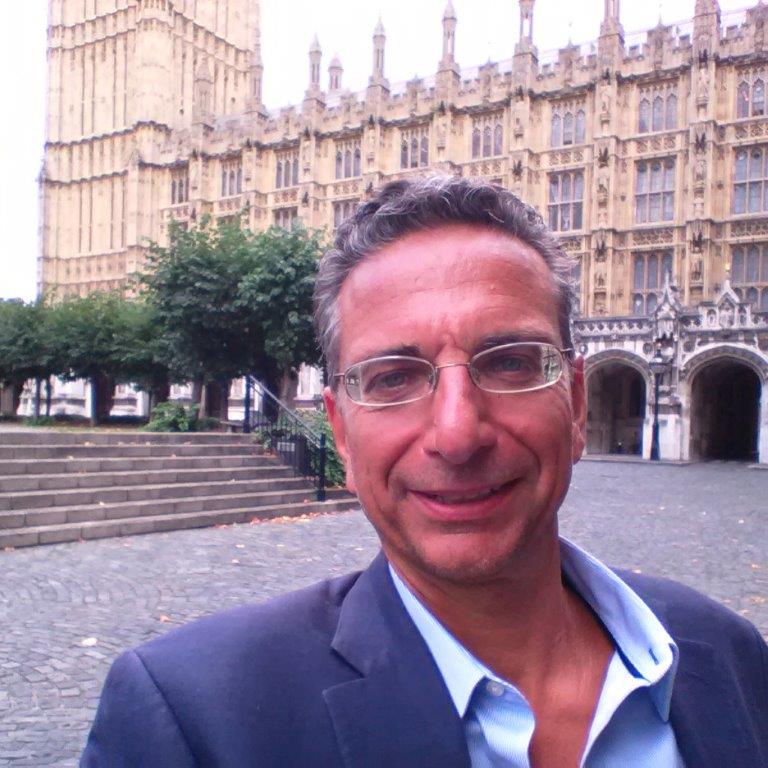There should be no confusion about the identity and motives of the Tunisian man who drove his truck into a crowd celebrating Bastille Day on a promenade in Nice, France, killing at least 84 and injuring hundreds. This is the face of the modern holy warrior, the fanatical foot soldier in the Islamic jihad against the West.
The French government was warned, after the Paris attack in November 2015, that its military intervention against the Islamic State made it a prime object of Islamist rage. As ISIS declared:
Let France and those who walk in its path know that they will remain on the top of the list of targets of the Islamic State, and that the smell of death will never leave their noses as long as they lead the convoy of the Crusader campaign, and dare to curse our Prophet, Allah’s peace and blessing upon him, and are proud of fighting Islam in France and striking the Muslims in the land of the Caliphate with their planes, which did not help them at all in the streets of Paris and its rotten alleys.
Here is the enemy that President Obama declines to name, much less to engage with anything like martial resolve. “Groups like ISIL can’t destroy us. They can’t defeat us,” Obama said in March. “They can’t produce anything. They’re not an existential threat to us.” It is an evasion: Islamist radicals are determined to use any means possible—including suicide bombers armed with chemical and nuclear weapons—to become an existential threat. It is an evasion because the refusal to confront the religious ideology of Islamic terrorism produces what the 9/11 Commission Report called “a failure of imagination”—the failure to remain vigilant and anticipate the tactics and determination of the jihadists.
In a way rarely seen before in the heart of Europe, cities have become soft targets of terror: Even a lone individual, driving a truck down a crowded avenue and prepared to die for his god, can inflict massive casualties.
ISIS affiliates are reportedly cheering the latest carnage. President Obama condemned yesterday’s attack “in the strongest terms” and said he stands “in solidarity and partnership” with the French people. What the president will not say, of course, is that his policy of prevarication toward radical Islam has made these attacks much more likely: the failure of the U.S.-led “coalition” to defeat ISIS on the battlefield has become the organization’s most effective recruiting tool. France began airstrikes against ISIS in Iraq in September 2014. A year later, France extended the campaign to Syria, and has been fighting Boko Haram, the violent Nigerian group in league with ISIS. But without strong American leadership, France’s military involvement amounts to an ineffectual, pin-prick strategy for defeating the terrorists.
All of this puts France, a nation in which Muslims make up about 10 percent of the population, at special risk. According to a study released in April by the International Centre for Counter-Terrorism (ICCT), France is the leading European country of origin for foreign fighters who join the ranks of ISIS in Syria and Iraq. Estimates vary, but roughly 2,000 radicalized French nationals have become part of jihadist networks. At least a third of all foreign fighters, according to the study, have returned to their home countries. In June, Belgian security forces warned that France and Belgium faced “imminent” attacks from ISIS cells travelling across Europe. Eight months ago, after the Paris assault that killed 147, French President Francois Hollande placed the nation under a state of emergency.
It didn’t matter. Details are still coming in, but it takes no leap of logic to view the Bastille Day massacre as something much more than a target of convenience. July 14, 1789, the day of the storming of the Bastille Prison and the start of the French Revolution, marks not merely the popular assault on despotic power. It commemorates for the French a new phase in the European debate over human rights: belief in the natural freedom and equality of every human being as the moral bedrock of liberal democracy.
President George W. Bush was mocked and excoriated by then Senator Barack Obama and his liberal allies for engaging the United States in a “clash of civilizations,” a false contest between militant Islam and the West. In his view, Bush was a clumsy Manichean, a medieval Crusader who was ignorant of the “root causes” of terrorism: poverty, Western imperialism, etc. Although each new atrocity has exposed this narrative as fatuous nonsense, the Obama White House has nevertheless worked to ban the war-footing mentality from every agency of government.
Yet the war against the moral norms of Western Civilization rages on—in London, Paris, Brussels, Istanbul, Nice, and beyond. The policies of retreat and retrenchment have failed. Europe is now bearing the brunt of that failure: thrust into the path of the gathering storm. “The horror,” said Hollande, “the horror has, once again, hit France.”
—
Joseph Loconte is an associate professor of history at the King’s College in New York City and a senior editor at Providence. He is the author of A Hobbit, a Wardrobe, and a Great War: How J.R.R. Tolkien and C.S. Lewis Rediscovered Faith, Friendship, and Heroism in the Cataclysm of 1914-1918.
Photo Credit: Evening view of Nice, France. By Cristiano Medeiros Dalbem, via Flickr.






